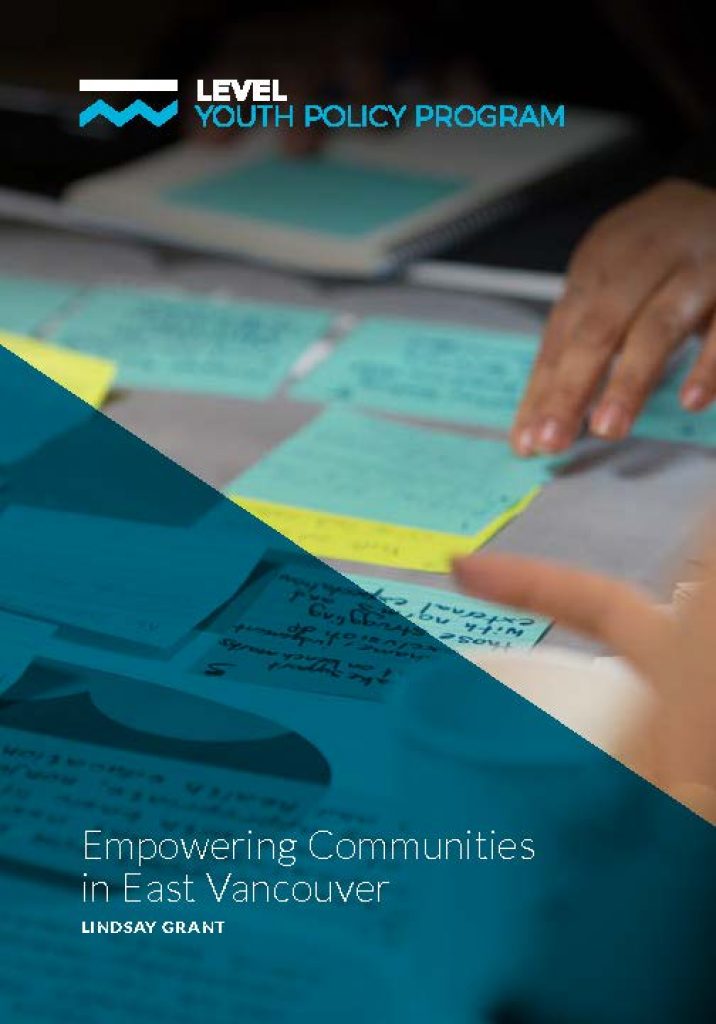Vancouver’s Downtown Eastside is frequently referred to as “Canada’s poorest area code.” The community is home to the largest population of people experiencing poverty and homelessness in Vancouver. A number of government initiatives and strategies are targeted to address social challenges in the Downtown Eastside, most notably the “Downtown Eastside Local Area Plan,” approved by the City of Vancouver in 2014. In addition, the neighbourhood is home to an enormous concentration of non-profit organizations, social services, and housing providers working to address the needs of local residents. From health services to arts and culture organizations, these agencies are enormously important to the continuing resilience of the Downtown Eastside community.
The purpose of this report is to consider options to encourage greater engagement of local residents in community governance and service provision in the Downtown Eastside. Specifically, mechanisms whereby community leadership might improve the relevance, effectiveness, sustainability of policymaking, and social services are studied. An additional consideration is the intrinsic value of investing in civic engagement among traditionally underrepresented populations. Research and evaluation of policy options was conducted with reference to the goals of facilitating participation in direct democracy among residents in the Downtown Eastside, enabling partnership between local residents, businesses, organizations, and service providers, and directing accountability of non-profit agencies to the populations and communities they serve. Given the neighbourhood’s location on unceded Coast Salish territories and a large Indigenous community, recognition of the rights of the local First Nations and engagement of the diverse urban Indigenous population are also key goals.
Research for this report consisted of informal interviews with East Vancouver residents, community organizers, and non-profit staff and directors, as well as attendance at community forums, meetings, and events. Relevant literature on the Downtown Eastside community and community leadership strategies was also reviewed. Finally four broad policy models wereinvestigated and evaluated for feasibility and potential impacts and challenges. The four policy models elaborated include Board Diversification, Neighbourhood Councils, Resource Boards, and Participatory Budgeting. Specific examples referenced include the Let’s Speak Up Initiative (Vancouver), the OnBoard Canada Project, Office of the Neighbourhood Model (Vancouver Washington, Portland), Community Resource Boards (British Columbia), Participatory Budgeting New York City Council (PBNYC), (New York), Participatory Budgeting in Scotland (PB Scotland), (Scotland), and Empower LA (Los Angeles).


